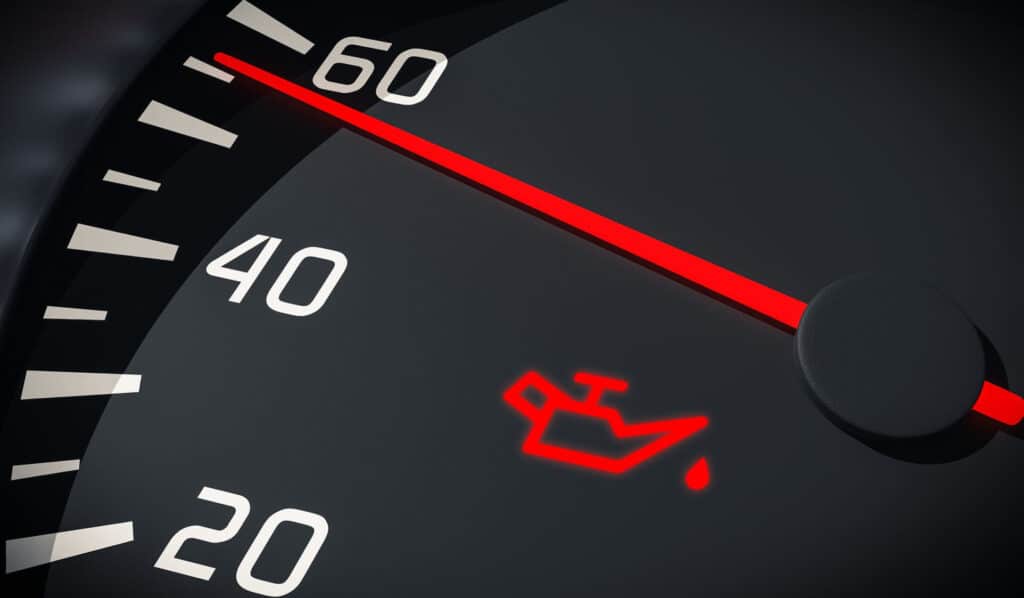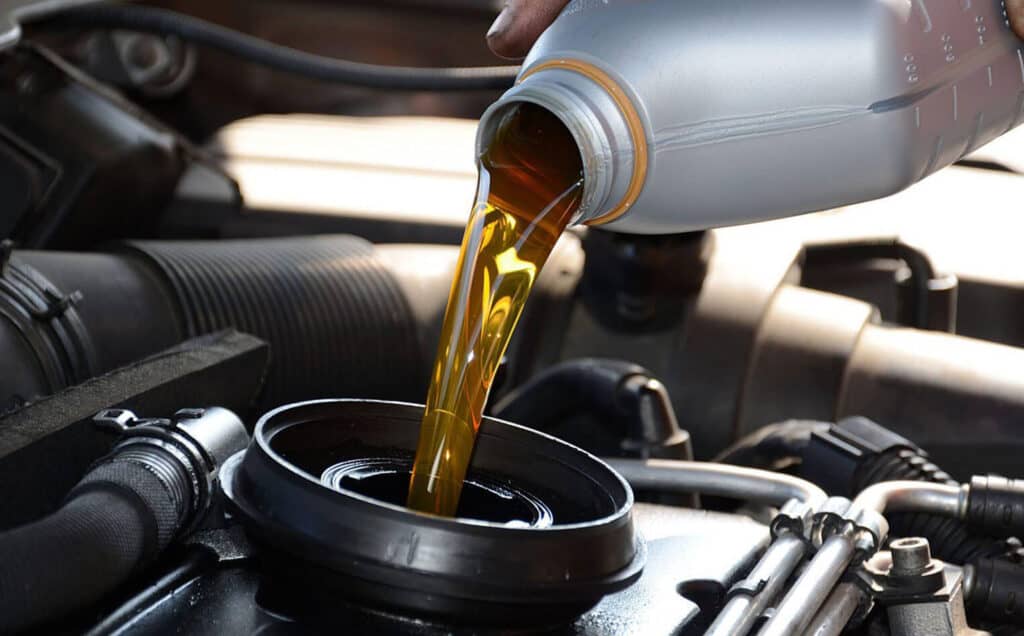Ever faced a blinking low engine oil warning light on your dashboard? Like a puzzling enigma, it begs the question, “What’s going on?” This guide will unravel the mystery and explain what the low engine oil warning means for you and your car.
Can You Keep Driving? Understanding the Risks of Ignoring the Warning
Ignoring this warning can be as serious as ignoring a tornado siren in the prairies. Your car’s engine relies on oil for lubrication, cooling, and cleaning. Without adequate oil, friction increases, parts overheat, and the risk of engine failure skyrockets. Think of it as running a marathon without water; sooner or later, the system will collapse. And the collapse might lead to an expensive repair or even engine replacement.
The warning isn’t there for mere decoration; it’s a vital sign of your vehicle’s health. The urgency of the low oil warning means you should pull over as soon as it’s safe to do so and check the oil levels. Driving with low oil is playing a dangerous game with your car’s engine, potentially leading to irreparable damage. It’s not a risk worth taking. Contact a reliable mechanic like Uchaincs to address the issue promptly.

Symptoms and Signals: How Your Car Acts When It’s Thirsty for Oil
• Unusual Sounds: Knocking, ticking, or rumbling from the engine can be like a baby’s cry, signaling inadequate lubrication and an immediate need for attention.
• Decline in Performance: A loss of power or fuel efficiency, similar to a parched athlete’s reduced abilities, might be noticeable when the engine needs oil.
• Overheating: The engine might run hotter than usual, much like how we overheat without proper hydration.
• Warning Light: The low oil warning light itself is a glaring sign not to be ignored, urging you to act before your car hits the proverbial wall.
These signals can be as varied as a dry cough or fatigue in humans and are important indicators that something might be wrong. Keeping an eye (and ear) on these symptoms ensures that you can address the oil needs promptly, maintaining your vehicle’s health and performance.
Oil Management 101: Topping Up, Mixing, and Monitoring Your Engine Oil
Confused about how often you should top up your engine oil? You’re not alone. Regularly checking the oil level is essential, and topping it up when needed ensures that your engine runs smoothly. It’s like keeping a plant well-watered. But, it’s not just about quantity; the quality of oil matters too. Using the right type of oil for your car is critical, much like using the right type of soil for a specific plant.
Wondering if it’s OK to add new oil to old oil? The answer is yes, but with caution. Mixing new oil with old is generally acceptable, especially if you’re using the same type and brand of oil. Think of it as refreshing your coffee with a hot top-up; it blends well. However, frequent topping up might indicate an underlying problem, like a leak or excessive consumption. In such cases, it’s wise to consult a professional to diagnose the issue, ensuring your engine continues to run as smoothly as a freshly brewed cup of morning coffee.
The Vanishing Oil Conundrum: Losing Oil Without a Leak?
“Why is my car losing oil but no leak?” You may find yourself asking, much like pondering over a magician’s disappearing act. It’s puzzling and unsettling. However, unlike a magic show, this vanishing act may have some very real explanations:
• Oil Consumption: Some engines naturally consume more oil as part of their normal operation. It’s a characteristic that might not be readily noticeable but happens over time.
• Internal Leakages: Just because you don’t see a leak doesn’t mean it’s not happening. Oil can leak into combustion chambers and burn away, making it seem as though it’s simply vanishing.
• Faulty PCV Valve: A malfunctioning Positive Crankcase Ventilation (PCV) valve may cause your engine to consume oil faster than usual.
• Inaccurate Dipstick Reading: Sometimes, the oil isn’t disappearing at all. An incorrect reading from a faulty dipstick might lead you to believe there’s less oil than there actually is.

While it may seem like a magic trick, understanding these potential causes can demystify the situation. Regular check-ups with a professional mechanic, like those at Uchaincs, can keep this conundrum under control.
The heart of your vehicle deserves the best care. Trust Uchaincs, a mobile mechanic company in Canada, for all your oil-related needs. If you’re low on oil or need assistance, make the right choice and contact Uchaincs today. Remember, protecting your car’s engine is like keeping the family treasure safe. Make the right choices, and your car will thank you with smooth rides and purrs of contentment.
